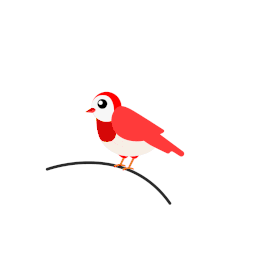Hadeda-ibis Helter-skelter
Hadeda (pronounced HAH-dee-dah, scientific name Bostrychia hagedash) is a large ibis, recognizable by its long beak and clumsy demeanor, is native to Sub-Saharan African.
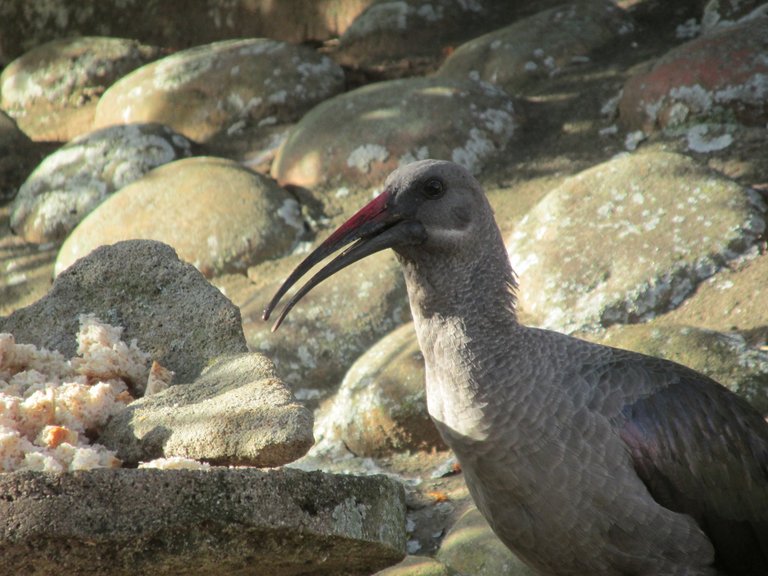
By what I understand their beaks are more sensitive more useful than hearing, no wonder they enjoy making themselves heard at dawn and dusk to let everyone know they are around. At night they will give a single hah to each other for close proximity comfort.

When disturbed at night instant flight, siren heralds out over the hills, on occasion more effective than having a dog in the garden barking.
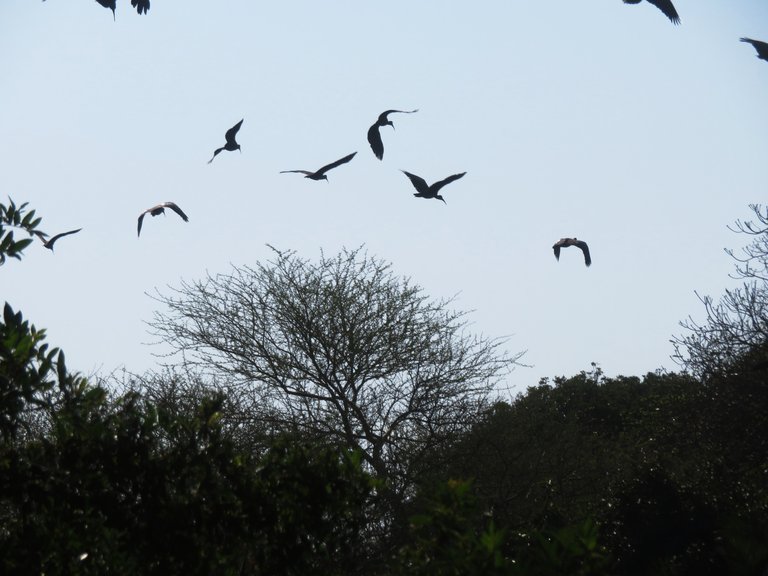
Social birds moving around in flocks of up to 20 or more, this may increase in size during breeding season which takes place in larger trees where they nest.
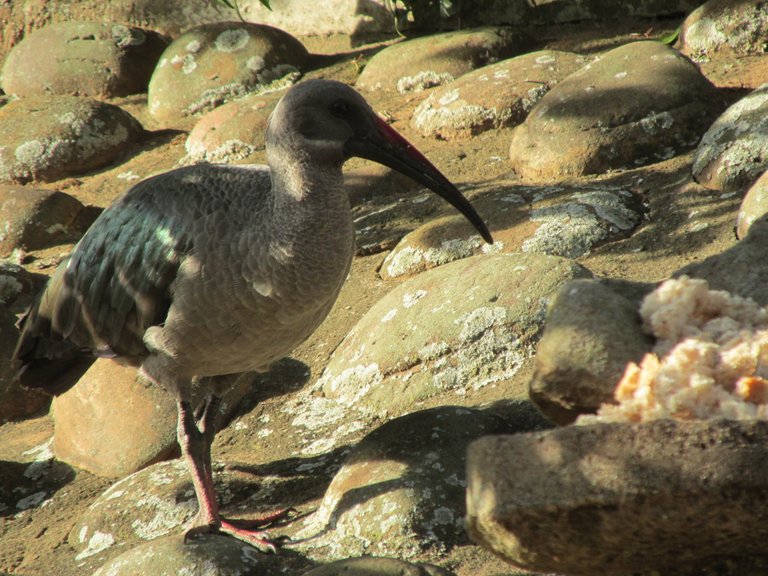
Carnivorous bird does good for the garden picking up whatever is moving beneath the ground, aerating the earth I always say. Do prefer moist regions which makes it easier for them to detect food source beneath the earth.
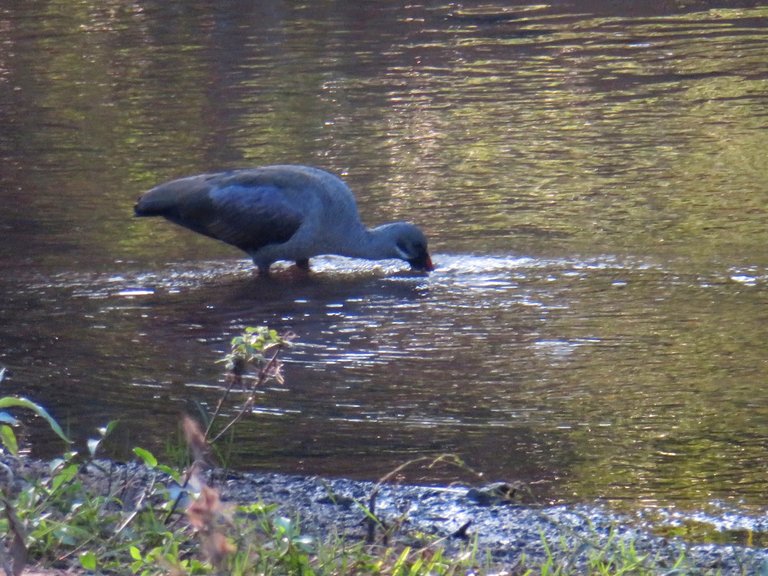
If you enjoy birding, this bird is seen throughout the land, well all except dry arid region of the Karoo, everywhere else without a doubt you will see and hear them!
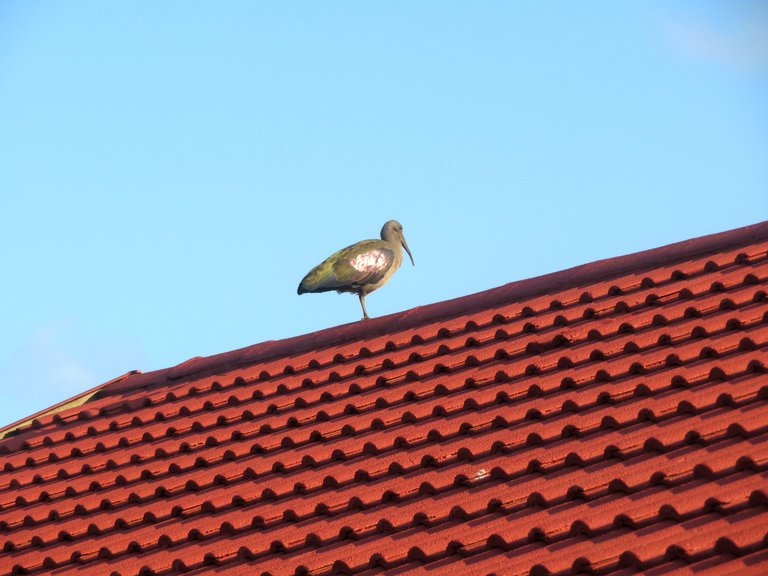
We do have many other species of birds that stay year round, this was the first unique blend that came to mind, such a rowdy/helter-skelter feathered friend being so ordinary a bird in the garden.

Thanks for visiting Feathered Friends, Entry to #SMAP No. 180 - Bird Contest with host @nelinoeva **ORDINARY BIRD **
Feathered Friends Community gratitude to @melinda010100 for sponsoring the contest. Our talented artist @barbara-orenya for on-going creative support.
All photography and stories are my own, thanks for reading and visiting. No AI here!
Thought for Today: "He who says we shall hear what happened never responds to any alarm of agency." - African Proverb
 How To
How To









